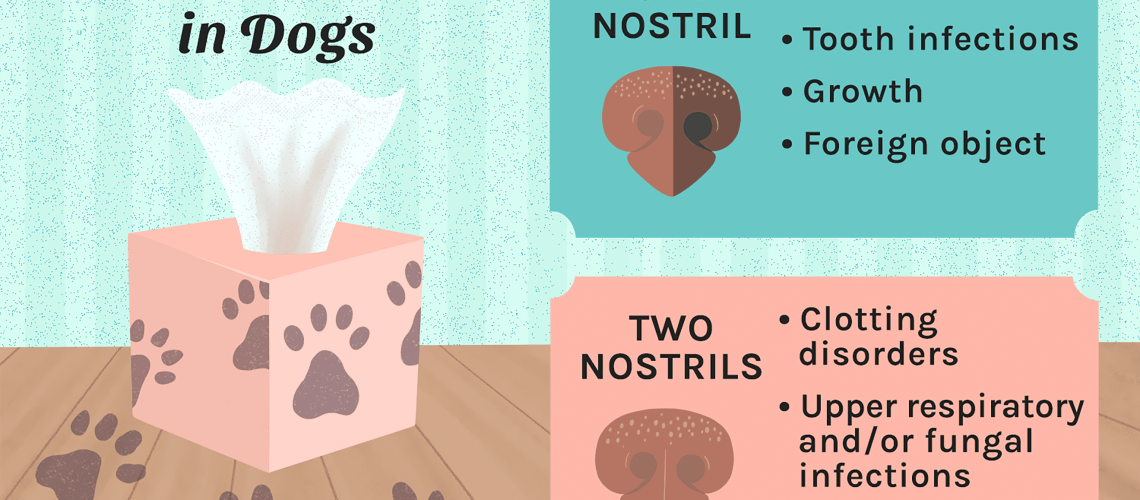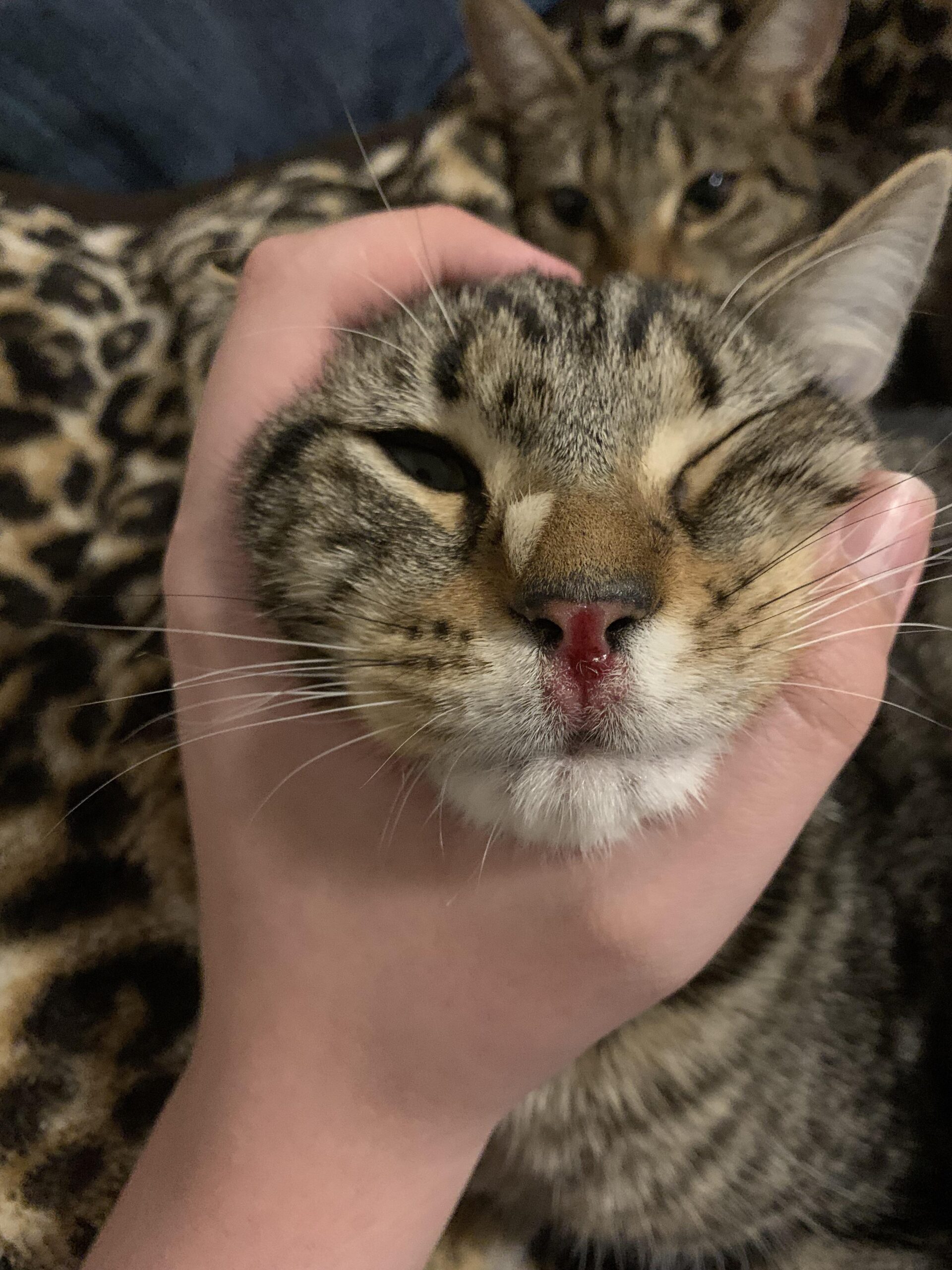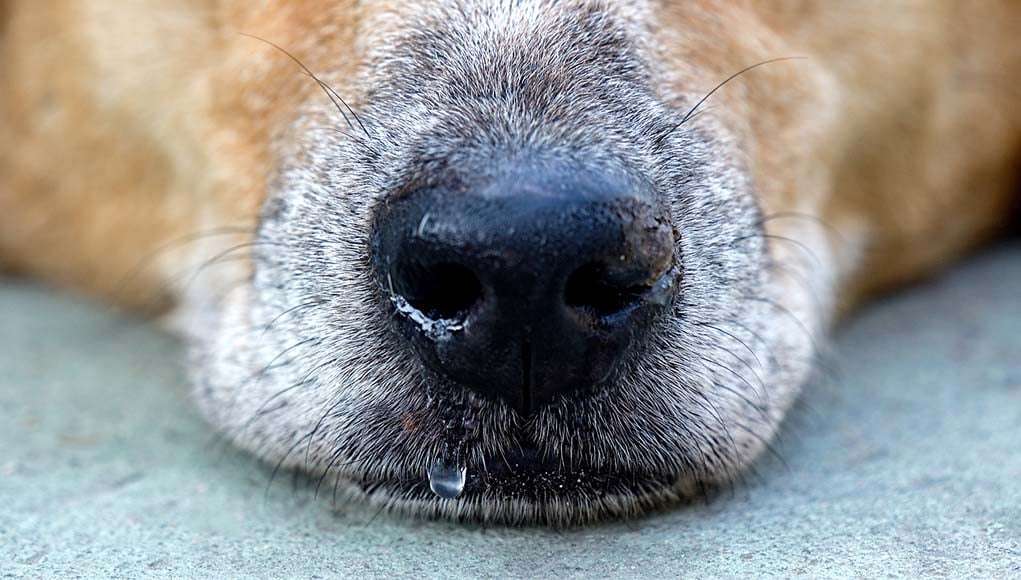Key Takeaways:
- Nosebleeds in dogs can be caused by various factors such as trauma, infections, foreign objects, or underlying health conditions.
- If your dog experiences a nosebleed, it is important to keep them calm and elevate their head slightly to help reduce bleeding.
- Seek veterinary attention if the nosebleed persists for more than a few minutes or if it occurs frequently.
- Diagnostic tests such as blood work, X-rays, or nasal endoscopy may be necessary to determine the underlying cause of the nosebleed.
- Treatment for nosebleeds in dogs will depend on the cause and may include medication, surgery, or supportive care to manage any underlying conditions.
Are you a dog lover? Do you want to ensure the health and well-being of your furry friend? Then understanding nose bleeds in dogs is essential for you! Imagine being able to recognize the signs and symptoms, knowing when it's a cause for concern, and even preventing nose bleeds altogether. By delving into this topic, you'll gain valuable insights that can potentially save your dog from unnecessary discomfort and even life-threatening situations. So let's dive right in and explore the fascinating world of nose bleeds in dogs together!
Causes of Nose Bleeds in Dogs
Nose bleeds in dogs can be caused by various factors. One common cause is trauma or injury to the nose. This can happen if your dog bumps its nose against a hard object or gets into a fight with another animal. Other possible causes include infections, such as sinusitis or fungal infections, which can lead to inflammation and bleeding. Nasal tumors are another potential cause of nose bleeds in dogs, especially in older dogs. These tumors can be benign or malignant and may require medical intervention.
In some cases, nose bleeds may also be a symptom of an underlying health condition, such as high blood pressure or blood clotting disorders. It's important to consult with a veterinarian to determine the exact cause of your dog's nose bleed and to develop an appropriate treatment plan.
Recognizing Nose Bleeds in Dogs
It's essential for dog owners to be able to recognize the signs of a nose bleed in their furry friends. Some common symptoms include:
- Blood dripping from the nostrils
- Sneezing or coughing up blood
- Excessive licking of the nose
- Difficulty breathing through the nose
If you notice any of these symptoms, it's crucial to monitor your dog closely and seek veterinary attention if necessary. Remember that even minor nose bleeds can indicate an underlying issue that needs medical attention.
Understanding the Severity of Nose Bleeds in Dogs
The severity of a nose bleed in dogs can vary depending on its cause and duration. In most cases, minor nose bleeds that stop within a few minutes are not considered life-threatening. However, frequent or prolonged bleeding should be taken more seriously, as it may indicate a more significant health problem.
If your dog experiences severe or recurring nose bleeds, it's crucial to consult with a veterinarian. They can perform a thorough examination and run diagnostic tests to determine the underlying cause. Prompt medical intervention can help prevent complications and ensure your dog receives appropriate treatment.
What to Do if Your Dog Has a Nose Bleed
If your dog has a nose bleed, there are several steps you can take to provide immediate care:
- Stay calm: Dogs can sense their owner's emotions, so remaining calm will help keep your pet relaxed.
- Gently restrain your dog: This will prevent them from pawing at their nose and potentially causing further injury.
- Elevate the head: Keeping your dog's head slightly elevated can help reduce blood flow to the nose and minimize bleeding.
- Apply gentle pressure: Use a clean cloth or gauze pad to apply light pressure to the nostrils for a few minutes. This can help stop the bleeding.
- Contact your veterinarian: It's important to inform your veterinarian about the situation so they can provide further guidance and schedule an appointment if necessary.
Potential Breeds Prone to Nose Bleeds in Dogs
While nose bleeds can occur in any breed of dog, certain breeds may be more prone to experiencing this issue. Brachycephalic breeds, such as Bulldogs, Pugs, and Boxers, have short noses and flat faces. These characteristics make them more susceptible to nasal problems like inflammation and infections, which can lead to nose bleeds.
Additionally, dogs with thin nasal tissues or those that engage in activities that increase the risk of trauma, such as hunting or aggressive play, may also be more prone to nose bleeds. It's important for owners of these breeds to be vigilant and take preventive measures to minimize the chances of nose bleeds occurring.
Preventive Measures for Avoiding Nose Bleeds in Your Dog
While some causes of nose bleeds cannot be prevented, there are steps you can take to reduce the risk:
- Avoid exposing your dog to potential nasal irritants, such as smoke or strong chemical odors.
- Keep your dog's environment clean and free from sharp objects that could cause injury.
- Regularly inspect your dog's nose for any signs of inflammation, discharge, or abnormalities.
- Ensure your dog receives regular veterinary check-ups to detect any underlying health conditions early on.
- If your dog is prone to dry nasal passages, consider using a humidifier in your home to keep the air moist.
By following these preventive measures and being proactive about your dog's health, you can help minimize the likelihood of nose bleeds and ensure your furry friend stays happy and healthy.
In conclusion, nosebleeds in dogs can be caused by various factors such as trauma, infections, or underlying health conditions. It is important to seek veterinary care if your dog experiences frequent or severe nosebleeds to determine the cause and provide appropriate treatment.
Should I worry if my dogs nose is bleeding?
If you observe nose bleeds or any health issue in your pet, it is important to remember that early diagnosis leads to early treatment. If you notice your dog or cat experiencing epistaxis, it is crucial to seek immediate veterinary care.
What does it mean if your dog is bleeding from his nose?
It can be worrisome if a dog experiences a nose bleed. Nose bleeds can happen due to various reasons such as injury, respiratory infections, dental issues, toxins, fungal infections, blood protein levels, or cancer. Some of these causes may require immediate veterinary care more than others.
Why is my dog sneezing blood out of one nostril?
If your dog is sneezing blood, it could indicate a more serious issue with their nasal passages. Potential reasons for this symptom include foreign objects, nasal tumors, and bacterial or fungal infections.
What stage of liver disease is nosebleeds?
Be cautious of nosebleeds, as they are a common symptom of cirrhosis. Nosebleeds can be categorized into two types: anterior and posterior. Frequent nosebleeds can occur because your body is more prone to bleeding.
How do you know if a nose bleed is serious?
Urgent action is necessary: Visit the nearest Accident and Emergency (A&E) department or call emergency services at 999 if you experience the following: bleeding that persists for more than 20 minutes, heavy bleeding resulting in significant blood loss, or difficulty breathing.
What is kennel nose?
Kennel nose is a condition that occurs when a dog repeatedly rubs its nose against something, causing irritation and potentially leading to abrasions and bleeding. Thankfully, kennel nose is easily identifiable, treatable, and preventable, and Top Dog is available to provide assistance.

















